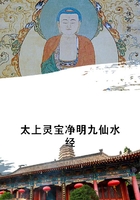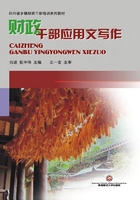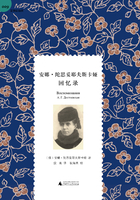Thus, for example, in a village near Dorpat, in Russia, when rain was much wanted, three men used to climb up the fir-trees of an old sacred grove. One of them drummed with a hammer on a kettle or small cask to imitate thunder; the second knocked two fire-brands together and made the sparks fly, to imitate lightning; and the third, who was called the rain-maker, had a bunch of twigs with which he sprinkled water from a vessel on all sides. To put an end to drought and bring down rain, women and girls of the village of Ploska are wont to go naked by night to the boundaries of the village and there pour water on the ground. In Halmahera, or Gilolo, a large island to the west of New Guinea, a wizard makes rain by dipping a branch of a particular kind of tree in water and then scattering the moisture from the dripping bough over the ground. In New Britain the rain-maker wraps some leaves of a red and green striped creeper in a banana-leaf, moistens the bundle with water, and buries it in the ground; then he imitates with his mouth the plashing of rain.
Amongst the Omaha Indians of North America, when the corn is withering for want of rain, the members of the sacred Buffalo Society fill a large vessel with water and dance four times round it. One of them drinks some of the water and spirts it into the air, making a fine spray in imitation of a mist or drizzling rain. Then he upsets the vessel, spilling the water on the ground; whereupon the dancers fall down and drink up the water, getting mud all over their faces. Lastly, they squirt the water into the air, making a fine mist.
This saves the corn. In spring-time the Natchez of North America used to club together to purchase favourable weather for their crops from the wizards. If rain was needed, the wizards fasted and danced with pipes full of water in their mouths. The pipes were perforated like the nozzle of a watering-can, and through the holes the rain-maker blew the water towards that part of the sky where the clouds hung heaviest. But if fine weather was wanted, he mounted the roof of his hut, and with extended arms, blowing with all his might, he beckoned to the clouds to pass by. When the rains do not come in due season the people of Central Angoniland repair to what is called the rain-temple.
Here they clear away the grass, and the leader pours beer into a pot which is buried in the ground, while he says, Master Chauta, you have hardened your heart towards us, what would you have us do? We must perish indeed. Give your children the rains, there is the beer we have given you. Then they all partake of the beer that is left over, even the children being made to sip it.
Next they take branches of trees and dance and sing for rain. When they return to the village they find a vessel of water set at the doorway by an old woman; so they dip their branches in it and wave them aloft, so as to scatter the drops. After that the rain is sure to come driving up in heavy clouds. In these practices we see a combination of religion with magic; for while the scattering of the water-drops by means of branches is a purely magical ceremony, the prayer for rain and the offering of beer are purely religious rites. In the Mara tribe of Northern Australia the rain-maker goes to a pool and sings over it his magic song. Then he takes some of the water in his hands, drinks it, and spits it out in various directions. After that he throws water all over himself, scatters it about, and returns quietly to the camp.
Rain is supposed to follow. The Arab historian Makrizi describes a method of stopping rain which is said to have been resorted to by a tribe of nomads called Alqamar in Hadramaut. They cut a branch from a certain tree in the desert, set it on fire, and then sprinkled the burning brand with water. After that the vehemence of the rain abated, just as the water vanished when it fell on the glowing brand. Some of the Eastern Angamis of Manipur are said to perform a some-what similar ceremony for the opposite purpose, in order, namely, to produce rain. The head of the village puts a burning brand on the grave of a man who has died of burns, and quenches the brand with water, while he prays that rain may fall. Here the putting out the fire with water, which is an imitation of rain, is reinforced by the influence of the dead man, who, having been burnt to death, will naturally be anxious for the descent of rain to cool his scorched body and assuage his pangs.
Other people besides the Arabs have used fire as a means of stopping rain.
Thus the Sulka of New Britain heat stones red hot in the fire and then put them out in the rain, or they throw hot ashes in the air. They think that the rain will soon cease to fall, for it does not like to be burned by the hot stones or ashes. The Telugus send a little girl out naked into the rain with a burning piece of wood in her hand, which she has to show to the rain. That is supposed to stop the downpour. At Port Stevens in New South Wales the medicine-men used to drive away rain by throwing fire-sticks into the air, while at the same time they puffed and shouted. Any man of the Anula tribe in Northern Australia can stop rain by simply warming a green stick in the fire, and then striking it against the wind.















